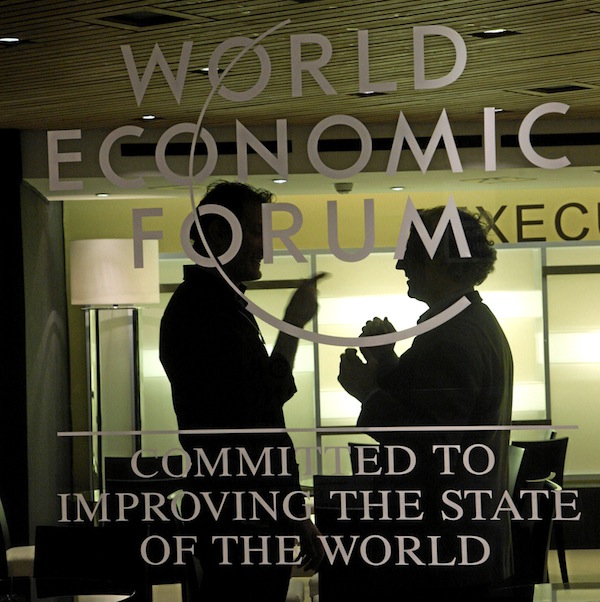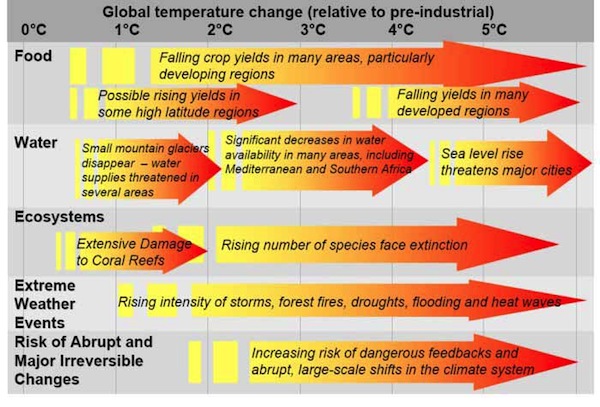 Monika Flueckiger, Swiss-Image. Annual Meeting 2010 of the WorldEconomic Forum
Monika Flueckiger, Swiss-Image. Annual Meeting 2010 of the WorldEconomic Forum
The world's political and economic elite are gearing up to make the pilgrimage to the World Economic Forum next week. From warnings and criticisms to tongue-in-cheek guides to crashing parties, the sleepy ski resort of Davos is back for its annual outing in the news. For many, it's just another "important" event, full of people "chasing successful people who want to be seen chasing other successful people." So why bother -- literally and metaphorically -- to make the long trek up?
The real importance of Davos doesn't lie in its 81-page preliminary Global Risks report, which covers everything from austerity to the discovery of alien life. It's not in the Twitterati exploding with excitement and/or anger or the igloo encampments of Occupy Davos. It's not even about the (heartbreaking?) news that Google is cancelling its infamous Friday-night party this year.
Where the value truly presents itself is its ability to cut through chatter at the global level. Much like a point action plan, it identifies the few key topics that the world should focus its attention on, if only for the next 12-odd months. Last year's conference, for example, brought the spotlight on the criticality of the food-water-energy nexus and how it relates to growth and social stability. As a result, practically every major organisation and interest group had some sort of report or conference on offer on the topic and that is a good thing. The general acceptance of the fact that we need to maintain our natural capital stocks to survive is wonderful and groundbreaking, but to effect real change, a piecemeal approach is futile. "The real impact of rethinking the value of nature and incorporating that new thinking into investment, development and policy decisions will come as entire industries see the necessity, from a business perspective, of viewing nature in a fundamentally different light," wrote Mark Tercek, president and CEO of The Nature Conservancy, of last year's proceedings. That is what the World Economic Forum, the celebrity of conferences, plates up for its consortium of global rock stars in return for the hefty attendance fee.
When it comes down to the bottom line, there are enough things competing for attention that it's easy to get overwhelmed. When it's not the ongoing global financial crisis, it's the political gridlock in the United States or the growing exasperation within the Eurozone. If politics isn't your cup of tea, there's always the knowledge that greenhouse gas emissions aren't slowing down fast enough to limit global warming to two degrees Celsius. Or that extreme weather events like the droughts, floods and superstorms of last year will soon become the norm rather than the exception. In fact, reading the list of "game-changers" that appear in WEF's 2013 Global Risks Report is much like running through the endings of disaster movies.
 The Effects of Rising Average Global Temperatures. Source: The Stern Review on the Economics of Climate Change, 2006.
The Effects of Rising Average Global Temperatures. Source: The Stern Review on the Economics of Climate Change, 2006.
Perhaps then there is reason that the sessions this year will take place under the banner of "Resilient Dynamism." It's a term catchy enough to resonate while simultaneously leaving it open to interpretation. Permitting a bit of artistic license, to be resilient is to be dynamic; to be able to withstand shocks yet still be able to adapt to changes. But for a hyper-connected world such as ours, resilience becomes especially important. Whether it is a single-point vulnerability that triggers a domino effect toppling critical information infrastructure, geopolitical threats or irreversible loss of biodiversity, we will be affected regardless of where we live or how much is in our wallets.
To prepare for this gamut of risk demands resilience, be it physical or mental. To find the courage to take the necessary steps, however, could be interpreted as dynamism. The ability to match bold vision with bold actions will be much needed in the coming years and all hands -- government, business and scientific -- will have to be on deck and working together. Dynamic leadership will be instrumental in building the required resilience. In a tired and beaten-down world, these could, in part, be the subliminal messages that we're already seeing from Davos.
What you shouldn't expect from Davos are actual decisions. Rather, expect a better knowledge of the playing field for the year to come, complete with its political and economic potholes, and who could be your phone-a-friend.